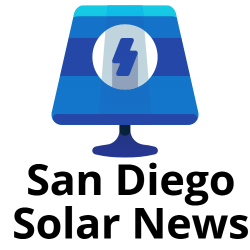What dimension solar inverter do I want for my dwelling? – Vitality issues
So you think about installing a solar system – you make us smile.
Welcome to the world of renewable energy, where you can sleep soundly at night knowing that your heating or cooling system won’t send you to the poor house.
You can also enjoy knowing that you are doing your part to fight climate change, improve your carbon footprint and switch to the new way of powering your household. There’s a lot to look forward to in this area, and you made the transition at a good time.
So what do you need to know? Ultimately, your main power system consists of three main parts: the panels, the battery storage and the inverter.
Okay what’s the inverter?
This essentially converts direct current to alternating current. Solar panels are built to convert sunlight into direct current. However, your home does need AC power to run all of your lights and appliances. Therefore, the inverter is a very important part of the setup. However, there are many different types of inverters on the market. So which one should you buy with your system?
How do I know what size solar inverter to buy?
Your inverter should be aligned with the DC power of the solar system itself. So if you have a 6 kilowatt (kW) system, you need an inverter that is roughly 6000W. It’s perfectly fine for your inverter to be a bit smaller or larger, but you want it to be about the size of your system so that all of the DC power it generates can be converted into usable AC power for your home.
How many watts do you need to run a house with solar energy?
This is a good question as it affects not only the size of the inverter, but also the number of panels you will need on your roof to fully power your home. At the very least, you will need a 1500W inverter and 1.5kW system, but this is really just an entry point and is designed for small homes with minimal power consumption.
There are also two numbers to consider: continuous power and peak / surge power. The continuous output refers to the watts that your inverter delivers around the clock to supply your house with electricity. Peak / Surge is the rated power required to start larger appliances like your refrigerator or air conditioner, which can require 3 to 7 times the power.
You can use devices such as smart meters to determine your home’s electricity needs, both continuous and peak / voltage, and align that data with the system you need to purchase. This is also a golden opportunity to understand your energy usage so you can make small changes that can also make a big difference to your electric bill.



Comments are closed.